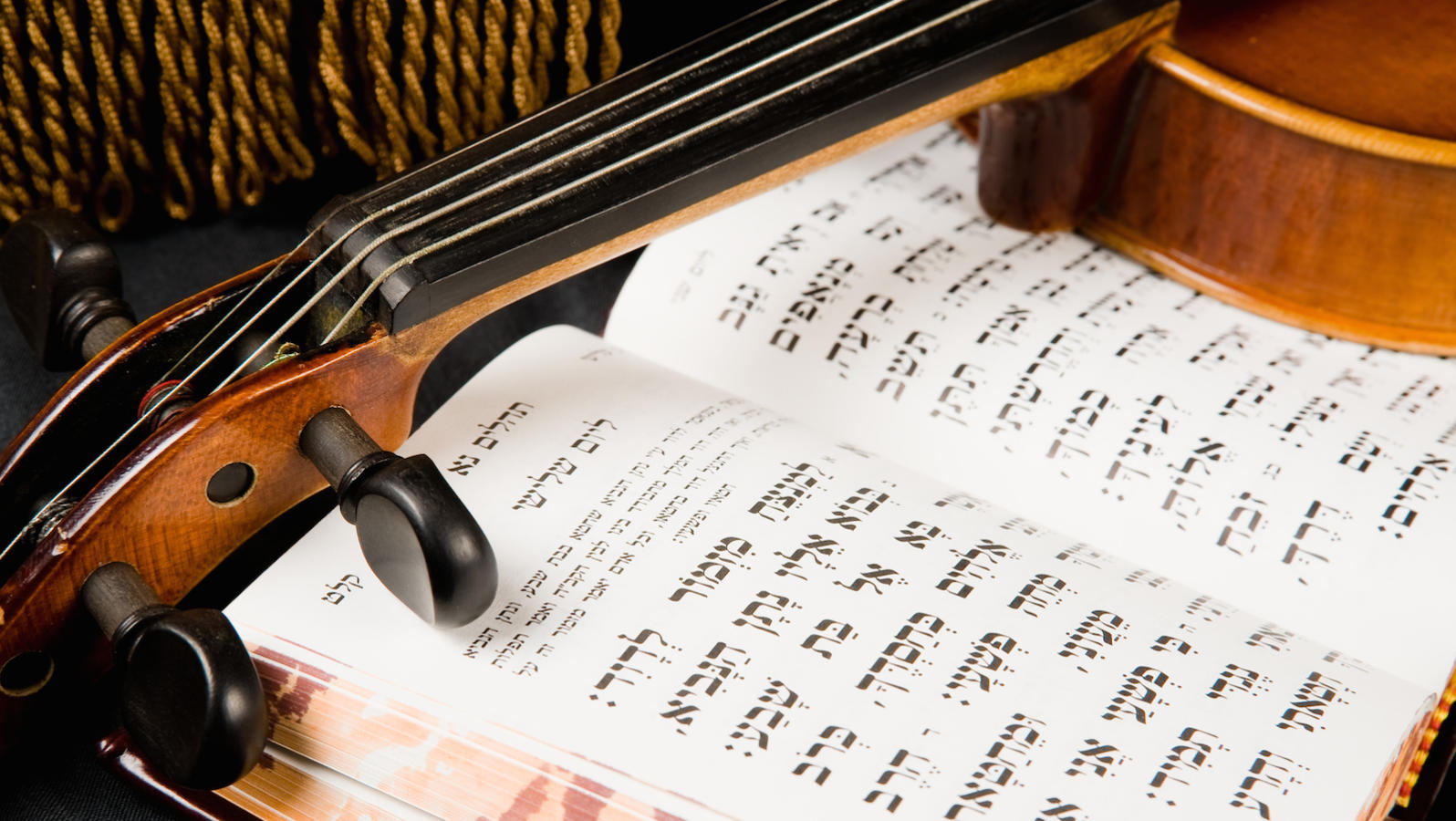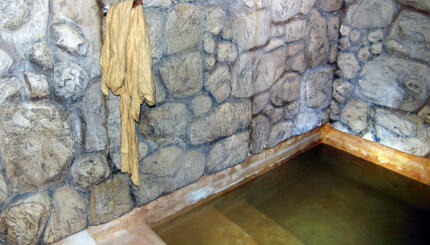Commentary on Parashat Nasso, Numbers 4:21-7:89
The G-d-centric, Torah-centric, Mishkan (Tabernacle)-centric Israelite camp described in the opening section of the Book of B’midbar [Numbers] is ordered, sanctified and serene. A census of the population is taken. The tribe of Levi is counted separately, and their holy tasks in the Mishkan are assigned:
All those that were numbered, whom Moshe and Aharon and the princes of Israel counted of the Levites according to their families and according to their fathers’ houses; from thirty years old and upward, until fifty years old, all those who come to perform service to a service (avodat avodah) and the service of carrying in the Tent of Meeting. Their accounts were 8,580. According to the word of Hashem through Moshe did he appoint them, each one to his service and to his burden, and those that were numbered constituted that which Hashem had commanded Moshe (Numbers 4:46-49).
Two Categories of Service
The Levites’ duties fall into two distinct categories of service. The service of carrying is obviously the transporting of the parts of the Mishkan from place to place in the desert, a responsibility that would become superfluous once the people would enter the land of Israel. But, what is service to a service (avodat avodah)?
This is not the first time such a dichotomy has been employed by the Torah. Verse 24 speaks of the service of the families of the Gershon-division of the tribe of Levi:
to serve (la’avod) and to carry (l’masah).
There, Ibn Ezra (12th century Spain) says that, while “to carry” refers to transporting the Mishkan from one encampment to the next, “to serve” refers to all the duties of the Levites at the place of encampment. These duties include setting up the Mishkan, baking the show-bread, slaughtering the sacrifices and guarding the Mishkan. The distinction between the two lies in the place where the duties are discharged.
With your help, My Jewish Learning can provide endless opportunities for learning, connection and discovery.
Rashi, based on the Talmud (Arachin 11a) and the Midrash (Bamidbar Rabbah 6:10), sees in the phrase “service to a service (avodat avodah)” an allusion to the Shirah, song and instrumental music produced by the Levites. During the wine-libations of certain obligatory sacrifices, the Levites would sing and play musical instruments as an accompaniment to the sacrificial service.
From the age of twenty-five, Levites would begin training in instrumental and vocal music. After age fifty, when a Levi is disqualified from many duties, he may continue to function as a musician.
According to Rashi, the phrase “service to a service” refers to music because it is the service that is to say, accompanying, another service, namely the sacrifices. A fuller treatment of the musical duties of the Levites is found in Divrei HaYamim (Chronicles).
For example,
“And he [King Chizkiyahu] set up the Levites in the House of Hashem with cymbals, with harps and with lyres by the command of David and Gad, the king’s seer, and Natan the prophet, for in the Hand of Hashem is the command by the hand of His prophets” (Divrei HaYamim II 29:25).
In the Rashi commentary on that verse, it says that the service of music is not explicitly stated in the Torah, but is communicated via the prophets. At best, it is hinted at in the Torah.
In the passages cited in Arachin and Bamidbar Rabbah the Sages search for a Torah hint for the institution of music during the sacrifices. The verse, “all those who come to perform service to a service” is one of many suggested, but it seems to be the most persuasive source, according to Rashi.
Rabbeinu Bachya (ben Asher ben Hlava, 13th Century) further defends identifying the Levites’ music as a service from the following verse:
“And the musicians the children of Asaf upon their positions…they must not depart from upon their service (Avodatam)” (Divrei HaYamim II 35:15).
In contrast, Rambam (Laws of the Sanctuary Utensils 3:2) quotes a different verse suggested by the Sages:
“And he will serve with the Name of Hashem his G-d as all his brethren, the Levites” (Deuteronomy 18:7), for which Rambam quotes the reasoning of the Sages: ‘What type of service is “with the Name of Hashem?’ We must say it is song.”
All these commentaries agree that the Levites’ music is a service. But, while Rambam focuses on the fact that it is a service performed with the voice, uttering the Name of Hashem, Rashi defines it as the only service that is not performed alone, but as an adjunct to another service.
Haketav V’hakabbalah (R. Yaakov Tzvi Mecklenburg, 1785-1865) has a different approach to the essence of the Levites’ music as service. He quotes the same verse as Rabbeinu Bachya, and he accepts Rashi’s use of “service to a service (avodat avodah),” but says that music is so called because it expresses joy:
“In the same way as a commandment is service to Hashem, may He be blessed, so is the joy of the commandment called service, as it is written, ‘because you did not serve Hashem, your G-d, with joy’ (Devarim 28:47).”
Behold, joy is the completion of the service. Therefore, the music that the Levites would produce to arouse joy for the commandment of offering sacrifices, so that the performance of the commandment will be with joy, is called service to a service.
Wholeness
Music expresses wholeness (an idea that is found in the writings of the Maharal, R. Yehudah Loew ben Betzalel, c. 1525-1609). Haketav V’hakabbalah argues that music is service to a service because it makes the service of sacrifices into a total service to Hashem by completing it through joy.
Perhaps, more than other commandments, sacrifice requires joy because it has the greatest potential for confusing the means with the ends: We may mistakenly think that Hashem is “appeased” through our sacrifice, regardless of our emotional state. The Levites’ song teaches that Hashem wants not only obedience, but devotion as well.
The Zohar (III:223b) says that music has the same spiritual source as prophecy. Prophecy is the joyful fulfillment of the human personality.
When we serve Hashem in joy, we complete ourselves. Then, Hashem’s camp is truly whole.
Provided by the Orthodox Union, the central coordinating agency for North American Orthodox congregations.
Aharon
Pronounced: ah-ha-RONE, Origin: Hebrew, Aaron in the Torah, brother of Moses.
Midrash
Pronounced: MIDD-rash, Origin: Hebrew, the process of interpretation by which the rabbis filled in “gaps” found in the Torah.
Moshe
Pronounced: moe-SHEH, Origin: Hebrew, Moses, whom God chooses to lead the Jews out of Egypt.
Torah
Pronunced: TORE-uh, Origin: Hebrew, the Five Books of Moses.
Yaakov
Pronounced: YAH-kove or YAH-ah-kove, Origin: Hebrew, Jacob, one of the Torah's three patriarchs.



